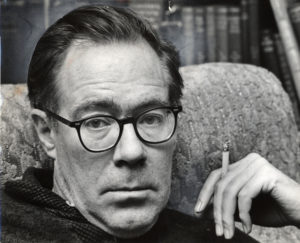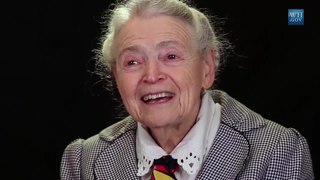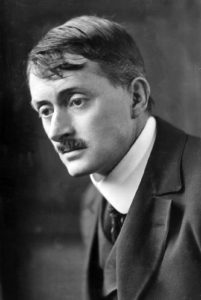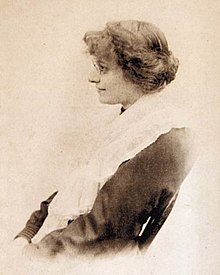We have decided to create the most comprehensive English Summary that will help students with learning and understanding.
The Merchant of Venice Act 2 Scene 9 Summary Workbook Answers
The Merchant of Venice Act 2 Scene 9 Summary
The second of the Casket scene reveals Prince Arragon making the choice. The rituals of the selection start. Portia tells about the rules of the game. The Prince quickly rejects the lead casket. It is not worthy or beautiful enough to risk everything. He rejects the gold one also, as choosing what many desire will put him at the same level as the common ones, He, finally chooses the silver casket as the inscription appeals to him.
He does not like to get anything without deserving, and the inscription on the casket says, ’Who chooseth me shall get as much as he deserves.’ He is sure that he’s full of merit, and therefore deserves the prize of Portia’s hand. When he opens the casket, much to his horror, he finds a portrait of a blinking idiot. He reads the message, which says. ‘There be fools alive, iwis’ silver’d over, and so was this. ‘He then departs with his followers. Portia is happy. She tells Nerissa that even fools choose deliberately, thinking that they are wise in their decision; but their deliberate decision finally defeats them.
After the departure of Arragon, a messenger comes to inform them that a handsome Venetian young man has arrived with rich gifts to her. Portia, weary of all unsuccessful suitors, thinks of Bassanio. She is eager to see the newcomer because he appears to be decent. Nerissa wishes the young man turns out to be Bassanio. The servants comment, ‘A day in April never came so sweet to show how costly summer was at hand’, anticipates the fulfillment of Nerissa’s wish.
The Merchant of Venice Act 2 Scene 9 Summary Word Meanings
- straight – at once
- election – choice
- contain’d – enclosed
- nuptial rites – marriage ceremony
- solemniz’d – performed, enjoin’d bound,
- unfold – disclose
- injunctions – conditions
- hazard – gamble
- fool multitude – foolish commoners
- fond – foolish
- pries not th’ interior – does not look more cautiously into the deeper meaning
- martlet – house martin that foolishly build nest in open air.
- casualty – danger
- cozen – untrustworthy
- wearer – who have the merits
- stand bare – with head uncovered
- peasantry – commoners
- gleaned – separated
- seeds – sons
- chaff – unwanted
- new varnish’d – newrly painted
- deserts – deserving
- choose amiss – choose wTong
- shadows kiss – embrace illusions
- linger – remain
- wroth – misfortune
- sing’d – burnt
- deliberate – think but make wrong decisions
- wiving- getting a wife
- alighted – dismounted
- signify – announce
- regrets – greetings
- schedule – scroll
- offices – functions
- commends – compliments
- breath – words
- likely – pleasing in appearance
- high day-wit – holiday humour
- anon – presently
- Cupid – god of Love
- mannerly – courteous.
The Merchant of Venice Act 2 Scene 9 Summary Questions and Answers
1. Portia:
Behold, there stand the caskets, noble prince :
If you choose that wherein I am contain’d
Straight shall our nuptial rites be solemniz’d;
But if you fail, without more speech, my lord,
You must be gone from hence immediately.
Prince of Arragon :
I am enjoin’d by oath to observe three things :
First, never to unfold to any one
Which casket ’tivas I chose; next, if I fail
Of the right casket, never in my life
To woo a maid in way of marriage; lastly
If I do fail in fortune of my choice
Immediately to leave you and be gone
Question 1.
Who is the noble Prince? Explain ‘Wherein I’m contained’.
Answer:
The noble prince is Prince of Arragon, a pompous suitor of Portia. Portia says that if he chooses the casket in which her portrait is contained, he will be able to marry her.
Question 2.
What are nuptial rites? What will happen, if he doesn’t choose the right casket?
Answer:
Nuptial rites are ceremonies of marriage. If he doesn’t choose the right casket, he will have to leave without saying anything.
Question 3.
What three things does he have to observe?
Answer:
As per the conditions of the will, he has to observe three things. He should not reveal to anyone which casket he had chosen. If he fails, he should not woo a maid ever in his life. And he should leave immediately.
Question 4.
Later on, which casket does he choose and why?
Answer:
Prince of Arragon chose the silver casket as the inscription on it says, ‘Who chooseth me shall get what many men desire’. He feels that there is no one in the world who deserves Portia as he does, because he doesn’t choose anything that he doesn’t deserve. Clear honour is purchased by the merit of the wearer.
Question 5.
What does the person find in the chosen casket?
Answer:
The person finds the portrait of a blinking idiot. The scroll along with it says that perfect judgement, that never makes mistakes, is tested seven times. Some embrace the illusion of happiness. Foolishness of some people is concealed by their silvery hair, just like what is inside the casket is concealed by the silver casket.
2. Prince of Arragon :
Who chooseth me must give and hazard all he hath’.
You shall look fairer, ere I give or hazard.
What says the golden chest ? ha ! let me see :
Who chooseth me shall gain what many men desire’.
What many men desire ! that ‘many’ may be meant
By the fool multitude, that choose by show.
Not learning more than the fond eye doth teach,
Which pries not to th ’ interior, but, like the martlet,
Builds in the weather on the outward wall,
Even in the force and road of casualty.
I will not choose what many men desire,
Because I will not jump with common spirits
And rank me with the barbarous multitudes.
Question 1.
The inscription given in the extract is etched on which casket? What does the speaker take the ‘many’ for? What does it reveal about his character?
Answer:
This inscription is found on the gold casket. The speaker takes the ‘many’ for common multitude. This shows that he is arrogant and considers himself above the others because of his noble birth and status.
Question 2.
Explain the reference to the Martlet.
Answer:
Martlet is the common house-bird that builds its nest in open areas, foolishly inviting the onslaught of nature. Here, Arragon means, in the same way, people who choose gold are falling for its outward show, without deeply understanding that all that glitters is not gold. It later on invites trouble.
Question 3.
Give the meaning of ‘rank me with the barbarous multitudes’.
Answer:
Arragon is not prepared to take the position of common people by choosing what many men desire.
Question 4.
To which casket does he go now? Who had earlier chosen the gold casket? According to Shakespeare what does gold stand for?
Answer:
Arragon goes to the silver casket. Prince of Morocco had earlier chosen gold casket. According to Shakespeare, gold symbolizes wealth and sensory beauty, which are temporary or transient. This shows that there is a difference between appearance and reality.
Question 5.
What does silver stand for? What theme does this scene depict?
Answer:
Silver stands for self-deception, vanity and conceit. The theme of the difference between appearance and reality is implied in this also. The folly of men who are victims of pride think they are logical in approach but are deceived by their own arrogance.
3. Arragon :
How many then should cover that stand bare !
How many be commanded that command!
How much low peasantry would then be glean’d
From the true seed of honour ! and how much honour .
Pick’d from the chaff and ruin of the times
To be new varnish’d! Well, but to my choice :
Who chooseth me shall get as much as he deserves
I will assume desert.
Question 1.
In which context does the prince speak these words?
Answer:
Prince of Arragon is shown the three caskets. He is impressed by the Silver one, as the inscription says that whoever chooses it shall get what he deserves. Due to his arrogance, he feels that he is the most deserving as he is full of merit by way of rank and position. He is comparing himself with the less deserving ones who really do not realize their lowest positions.
Question 2.
What did he say about merit?
Answer:
Prince of Arragon says that people should not try to cheat fortune and win something without merit. No man should wear the garb of dignity, which he does not deserve.
Question 3.
Who should cover? What does it mean?
Answer:
According to Prince of Arragon there are many who should actually cover their heads with their hats when in front of people of higher ranks, but they don’t do so. There are many who give orders without realizing that they are the ones who should obey them. It means that these people do not realize that they don’t deserve honor as they are not of noble family nor do they have merit.
Question 4.
What’s the meaning of low peasantry gleaned and ‘the chaff and the ruins of times’?
Answer:
Prince of Arragon means low ranking or common people by the peasantry. There are many such people who should be separated from the ranks of the truly honorable. True honor should be recovered from the unworthy rubbish of society so that they shine in their original brilliance.
Question 5.
What does the speaker think of himself in this scene? What does he realize at the end of the choice?
Answer:
The speaker thinks that he is above others in a position and qualities. He thinks he is wise and most deserving of all. He realizes what a foolish choice he has made. He gets the head of a fool for all his ‘wise’ deliberations.
4. Prince of Arragon :
What’s here ? the portrait of a blinking idiot,
Presenting me a schedule ! I will read it.
How much unlike art thou to Portia !
How much unlike my hopes and my deservings !
‘Who chooseth me shall have as much as he deserves ’.
Did I deserve no more than a fool’s head ?
Is that my prize ? are my deserts no better ?
Question 1.
Whose portrait was the speaker expecting? What does he get instead? What does it mean?
Answer:
The speaker was expecting the Portrait of Portia but instead there was one of a blinking idiot. It stands for the foolish decision made by the chooser.
Question 2.
What’s meant by schedule? What is written about that?
Answer:
The schedule is the scroll with its message. It is written that silver is tested seven times by the fire. Just like this, judgment has to be thought over seven times. Some give importance to shadows, and they get shadowy happiness. There are fools whose foolishness is hidden under silvery hair. It also mocks at the chooser by saying that no matter what wife he takes, his head will always be the fool’s head. He is asked to leave at once as his venture is over.
Question 3.
Earlier what does the speaker say about the reasons why he chose the silver casket?
Answer:
The speaker says that he chooses the silver casket as the inscription on it says that he’ll get what he deserves. He feels that those who choose on the basis of fortune don’t deserve the prize. Pure honor is attained only by deserving men like him.
Question 4.
What does the servant convey to the ladies at the end of the scene?
Answer:
The servant tells the ladies that a young Venetian has just arrived, who is actually a messenger to his lord from whom he brings worthy gifts and greetings. He has never seen such a messenger of love. A day in April never came so sweet to show how gorgeous the summer will be.
Question 5.
How do the ladies react to this information?
Answer:
Portia tells the servant to say no more as she is afraid, he is some relative of his, since he spends the fullest force of his intelligence and emotion in his praise. She tells Nerissa to go with her to meet this swift messenger of Cupid who has arrived in such a fine manner. Nerissa hopes it is Bassanio who has come like The God of Love.




